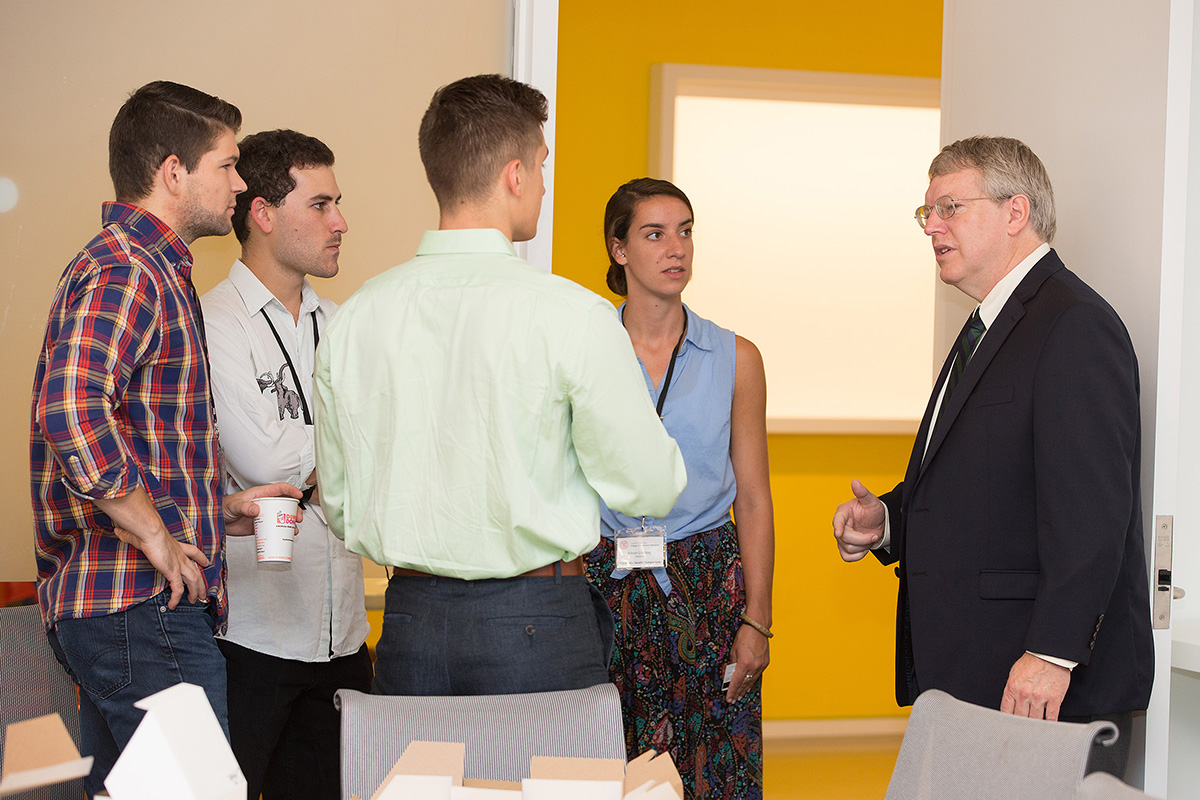Symposium looks at veterinary medicine in public health
By Emma Gorenberg

The Cornell College of Veterinary Medicine (CVM) hosted the seventh annual Veterinary Public Health Symposium Sept. 9-11. Organized by student members of the Cornell Veterinary Public Health Association, the symposium featured talks by a broad range of veterinarians, epidemiologists and public health officials.
The symposium commenced with the annual Poppensiek Lecture, this year delivered by Dr. Thomas W. Graham, president and CEO of Veterinarians Without Borders. A specialist in food animal medicine, Graham studies the direct effect of animal health on human health and the role of malnutrition in fetal and child development. His lecture centered on the time he spent in Africa, where limited access to food and protein sources has undermined the health of its population, particularly with regard to immunity, growth and neural development.
Graham worked with communities in Uganda to promote education about animal production, emphasizing livestock disease diagnosis and control. He underlined the importance of broad-based education and collaboration in public health, saying the profession is interdisciplinary by nature and should involve dynamic partnerships between veterinarians, physicians, researchers, social workers and other specialists.
“The Poppensiek Lecture by Dr. Graham highlighted ways veterinarians can impact public health through food production, human nutrition, zoonotic disease control and many other areas,” said Dr. Lorin Warnick, dean of the College of Veterinary Medicine. “Cornell is ideally suited to provide an excellent interdisciplinary education in these topics through the new Master of Public Health degree, which will draw on faculty expertise from across campus. The program will connect students to opportunities to practice their skills and put their on-campus learning in action, both in the United States and abroad.”
The MPH degree, which begins next year, will be based on the concept of “One Health,” which addresses the relationship between human, animal and environmental well-being.
Other speakers at the symposium and their topics:
- Dr. Gillian Perkins, director of biosecurity at the Cornell University Hospital for Animals, described the importance and challenges of implementing an encompassing infection control program for a variegated hospital.
- Dr. Yrjö Gröhn, the James Law Professor of Epidemiology at CVM, led a discussion and lab on infectious disease modeling.
- Dr. Morgan Hennessey, an epidemic intelligence service officer at the Centers for Disease Control and Prevention, spoke of performing local surveillance in Liberia in an effort to prevent the spread of the Ebola virus.
- Dr. Heather Case, executive director of the National Board of Veterinary Medical Examiners, discussed the increasing importance of the human-animal bond in disaster preparedness and response, and her time coordinating large-scale veterinary intervention in recent natural disasters.
- Dr. Christine Hoang, assistant director of the Division of Animal and Public Health of the American Veterinary Medical Association, described the complexities surrounding the use of antimicrobials in food-producing species.
- Dr. Patrick McDonough, professor emeritus of microbiology at CVM, spoke about the complexities inherent in Salmonella outbreaks.
Emma Gorenberg, MFA, VMD, is a resident at the Cornell University Hospital for Animals.
Media Contact
Get Cornell news delivered right to your inbox.
Subscribe